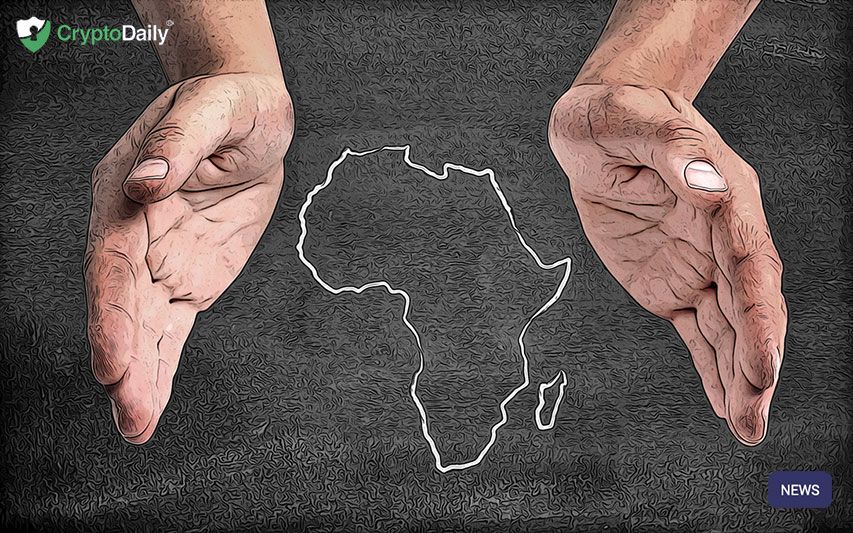Table of Contents
- A battleground for resources
- Democratized resources
- Kenya and Ethiopia among the pioneers
- Blockchain boosting the local economies
- The banks aren’t happy about blockchain
The Red Cross, as you might well know, is one of the biggest global organizations that push humanitarian causes all over the world. The poorest nations of Asia, Africa, South America, and so on are in the focal point of the organization, greatly benefiting from its developmental projects and initiatives.
And now, more than ever, the Red Cross is capable of achieving so much more. In fact, with the help of modern technologies, the organization is promoting blockchain and cryptocurrencies in Africa, as well as some European countries. For the time being, let’s focus on Africa.
A battleground for resources
Africa has always been a battleground for the colonial countries and empires. The continent’s resources, be it geographical, mineral, or human, and their acquisition were in the interests of almost every conqueror - starting from Alexander the Great to Hitler and Stalin. As a result of this battle for African resources, the continent fell behind with the overall economic growth that became a universal pattern in the twentieth century.
But the world is increasingly getting more thoughtful and considerate of those problems, recognizing that others cannot go on with their happy lives while a significant part of the world is still suffering from the lack of the most basic things. And modern technology, being a product of this development in the other parts of the world, is creating incredible opportunities to lift those nations out of poverty.
Democratized resources
Blockchain is one of such technologies. It was created in 2008 and it promises to bring vast opportunities for everyone. Among security, anonymity, and overall convenience, one thing that makes blockchain so beneficial for the African nations is its democratized nature.
According to the estimates, almost 1.7 billion people in the world are unbanked, meaning they don’t have access to bank accounts and online payments. And it’s not surprising to know that the majority of the unbanked people reside in Africa. Maybe they’re too far from a bank, maybe they don’t have enough paperwork, or maybe they’re deemed “unsuitable” for the bank services - it doesn’t matter because the outcome is the same: as far as the financial world is concerned, they do not exist!
And blockchain is set to improve those conditions. Setting up a crypto account doesn’t require any comprehensive documentation or make you leave your home; just the internet-connected device and your ID picture will suffice. And once it’s done, you’re already eligible for crypto remittances and transactions anytime and anywhere in the world.
Kenya and Ethiopia among the pioneers
And that’s the technology the Red Cross is trying to push in Africa. For the time being, they’re testing this feature in Kenya which can already be deemed as a distinguished financial hub on the continent. Starting from the Kenyan Forex trading brokers all the way to the local entrepreneurs, the Kenyan economy is making some tangible progress, even reaching a 6.3% growth rate in 2018.
According to Reuters’ report, the organization is already distributing $1 billion per year for various purposes such as disaster aid or encouraging local economies. This budget is supplied either via cash or specific vouchers which may have some shortcomings that we’ve mentioned above.
To alleviate those shortcomings and make aid transactions more stable and convenient, the Red Cross has been testing its blockchain scheme in Kenya, as well as Ethiopia. And the results have been overwhelming: not only did the aid transfers become more stable but the overall economy started to come to life again.
Blockchain boosting the local economies
Crypto-wallets and payments boosted trade in the poorest communities. For the first time, people became eligible for credit points created from aid remittances, work, or even sales that they made. And those points could then be spent via a smartphone app connected to the blockchain system.
There are several major points that need further specifying here: with blockchain-powered wallets and payments, the Africans will have a global reach over various retail websites such as eBay, Amazon, etc. as well as investment capabilities abroad or in their countries.
On top of that, the humanitarian aid that they receive from the Red Cross will be more specific and targeted. The transactions will be instantaneous, secure, and hack-proof. This can benefit both private citizens and entrepreneurs alike.
The banks aren’t happy about blockchain
However, this effort has met some backlash in Kenya. As one can imagine, there are major banks and other financial institutions that want and need to have a monopoly over the country’s financial environment. And before blockchain, they did.
But now, the Red Cross is undermining their posture by introducing a completely new form of payment. The blockchain-based credits and transactions have already proven to reduce demand for similar services provided by those banks.
As noted above, the project is tested in some parts of Kenya and Ethiopia for the time being. But the organization is planning to expand its blockchain coverage over those countries as a whole, as well as other African nations such as Cameroon, Zimbabwe, Malawi, etc. A targeted reach is 320,000 users over the next two years.
And what’s more, this is a pretty affordable project to run for the organization. Notwithstanding the initial $1 million to fund this whole start-up, the Red Cross can sufficiently run the project for just $40,000 per year.
Investment Disclaimer








